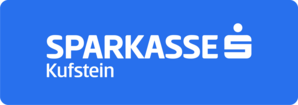
Apply
now
now
Supply Chain Management
level of course unit
k.A.Learning outcomes of course unit
The students
• know the basic procedures and methods of the resource management process in the areas of procurement, production and logistics.
• know the procedures for structuring and optimizing the supply chain.
• know the individual processes in procurement, production, warehousing and logistics.
• understand the importance of supply chain management for business success.• can calculate and interpret relevant key figures from supply chain management and evaluate their results.
• understand the influence and possibilities of Industry 4.0 and digitalization on supply chain management.
• know essential enterprise resource planning systems.
• know the basics of integrated standard business software.
• are able to assess the selection, introduction and adaptation of ERP systems.
• are able to assess and evaluate the use of alternative variants in the operational use of entrepreneurial reality.
• are able to recognize and understand the relevance of Industry 4.0 and digitalization on information systems and business processes.
• know the basic procedures and methods of the resource management process in the areas of procurement, production and logistics.
• know the procedures for structuring and optimizing the supply chain.
• know the individual processes in procurement, production, warehousing and logistics.
• understand the importance of supply chain management for business success.• can calculate and interpret relevant key figures from supply chain management and evaluate their results.
• understand the influence and possibilities of Industry 4.0 and digitalization on supply chain management.
• know essential enterprise resource planning systems.
• know the basics of integrated standard business software.
• are able to assess the selection, introduction and adaptation of ERP systems.
• are able to assess and evaluate the use of alternative variants in the operational use of entrepreneurial reality.
• are able to recognize and understand the relevance of Industry 4.0 and digitalization on information systems and business processes.
prerequisites and co-requisites
None
course contents
Part A.) Basics:
• Definition and historical development of supply chain management
• Differentiation of supply chain management from related concepts (e.g. value chain, logistics chain, customer relationship management, etc.)
• Structuring, tasks and objectives of supply chain management
• Motives for the development of supply chains (maverick buying, transaction costs, bullwhip effect, globalization)
• Material flow analysis in supply chains
• Design models of supply chain management
Part B.) Strategies of Supply Chain Management
• Vertical and horizontal cooperation strategies
• Supply strategies (e.g. Efficient Consumer Response, CRM and Mass Customization, Postponement, Sourcing strategies, Procurement strategies, E-Supply Chains)
• Strategies of disposal and recycling
Part C.) Supply chain management tools:
• Inventory reduction tools (e.g., decomposition of inventory, movement analysis, etc.).
• Instruments for freight cost reduction, information gathering, quality assurance and IT support
Part D.) Industry 4.0 & Digitalization in Supply Chain Management
• Key technologies in supply chain management (e.g. advanced planning systems, cyber-physical systems, embedded systems, supply chain visibility etc.)
• Smart supply chain
Part E.) Controlling of the Supply Chain
• Basics of cost tracking
• Key figure management in the supply chain
• Key figure typology of the supply chain
Part F: Process Modeling:
• Operational requirements in information management of operational and planning tasks
• Overview of the structure and functional scope of typical ERP systems (company codes, business areas, processes)
• Procedure for customizing an operational information system
• Tool support and practical exercises on an ERP system.
• Definition and historical development of supply chain management
• Differentiation of supply chain management from related concepts (e.g. value chain, logistics chain, customer relationship management, etc.)
• Structuring, tasks and objectives of supply chain management
• Motives for the development of supply chains (maverick buying, transaction costs, bullwhip effect, globalization)
• Material flow analysis in supply chains
• Design models of supply chain management
Part B.) Strategies of Supply Chain Management
• Vertical and horizontal cooperation strategies
• Supply strategies (e.g. Efficient Consumer Response, CRM and Mass Customization, Postponement, Sourcing strategies, Procurement strategies, E-Supply Chains)
• Strategies of disposal and recycling
Part C.) Supply chain management tools:
• Inventory reduction tools (e.g., decomposition of inventory, movement analysis, etc.).
• Instruments for freight cost reduction, information gathering, quality assurance and IT support
Part D.) Industry 4.0 & Digitalization in Supply Chain Management
• Key technologies in supply chain management (e.g. advanced planning systems, cyber-physical systems, embedded systems, supply chain visibility etc.)
• Smart supply chain
Part E.) Controlling of the Supply Chain
• Basics of cost tracking
• Key figure management in the supply chain
• Key figure typology of the supply chain
Part F: Process Modeling:
• Operational requirements in information management of operational and planning tasks
• Overview of the structure and functional scope of typical ERP systems (company codes, business areas, processes)
• Procedure for customizing an operational information system
• Tool support and practical exercises on an ERP system.
recommended or required reading
• Gadatsch, A. (2023). Grundkurs Geschäftsprozess-Management: Analyse, Modellierung, Optimierung und Controlling von Prozessen. Wiesbaden: Springer Verlag.
• Glitsch, S. (2023). Geschäftsprozesse erkennen, verstehen und optimieren: Mit grafischem Prozessmodell. Stuttgart: Schäffer-Poeschel Verlag.
• Hohmann, S. (2022). Logistik- und Supply Chain Management: Grundlagen, Theorien und quantitative Aufgaben. Wiesbaden: Springer Verlag.
• Kamram, Q. (2021). Strategic value chain management: Models for competitive advantage. London, UK: Kogan Page.
• Werner, H. (2020). Supply Chain Management: Grundlagen, Strategien, Instrumente und Controlling. Wiesbaden: Springer Verlag.
• Glitsch, S. (2023). Geschäftsprozesse erkennen, verstehen und optimieren: Mit grafischem Prozessmodell. Stuttgart: Schäffer-Poeschel Verlag.
• Hohmann, S. (2022). Logistik- und Supply Chain Management: Grundlagen, Theorien und quantitative Aufgaben. Wiesbaden: Springer Verlag.
• Kamram, Q. (2021). Strategic value chain management: Models for competitive advantage. London, UK: Kogan Page.
• Werner, H. (2020). Supply Chain Management: Grundlagen, Strategien, Instrumente und Controlling. Wiesbaden: Springer Verlag.
assessment methods and criteria
• Final exam
• Seminar work
• Seminar work
language of instruction
Germannumber of ECTS credits allocated
4eLearning quota in percent
25course-hours-per-week (chw)
3.5planned learning activities and teaching methods
• 25 % of the event is covered by eLearning. A combination between online phases (inductive method for the independent acquisition of knowledge and the practice of tasks) and presence phases (deductive method, in which assistance is given in the learning process and knowledge is imparted via frontal lectures) is used.
• Selected case studies are worked on in groups, presented and discussed in plenary sessions.
• Selected case studies are worked on in groups, presented and discussed in plenary sessions.








